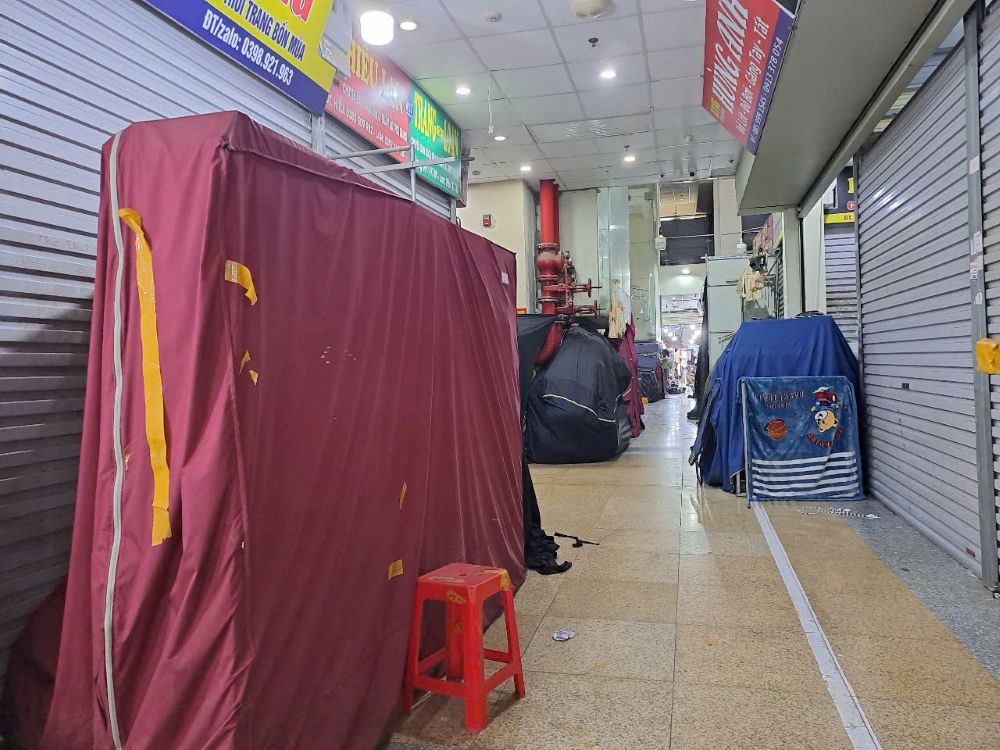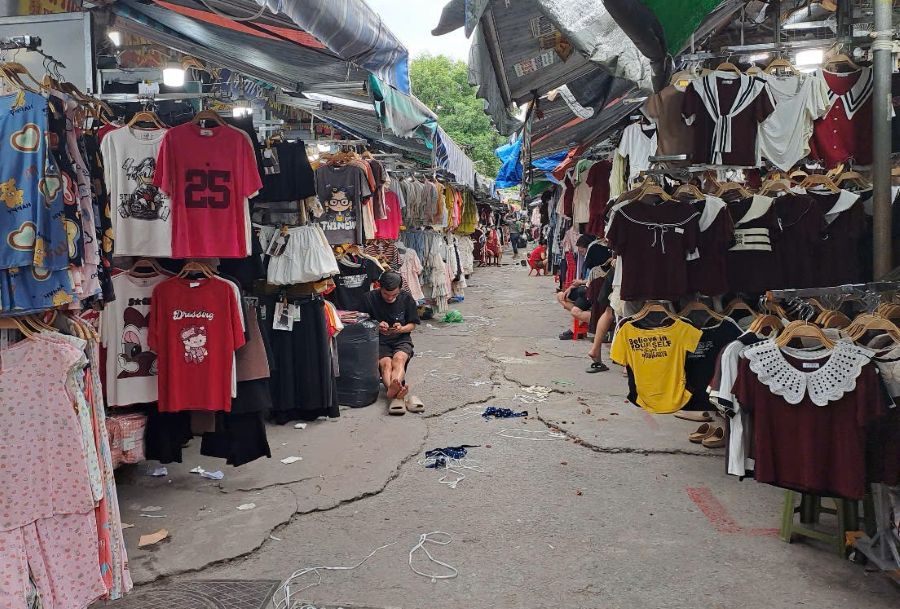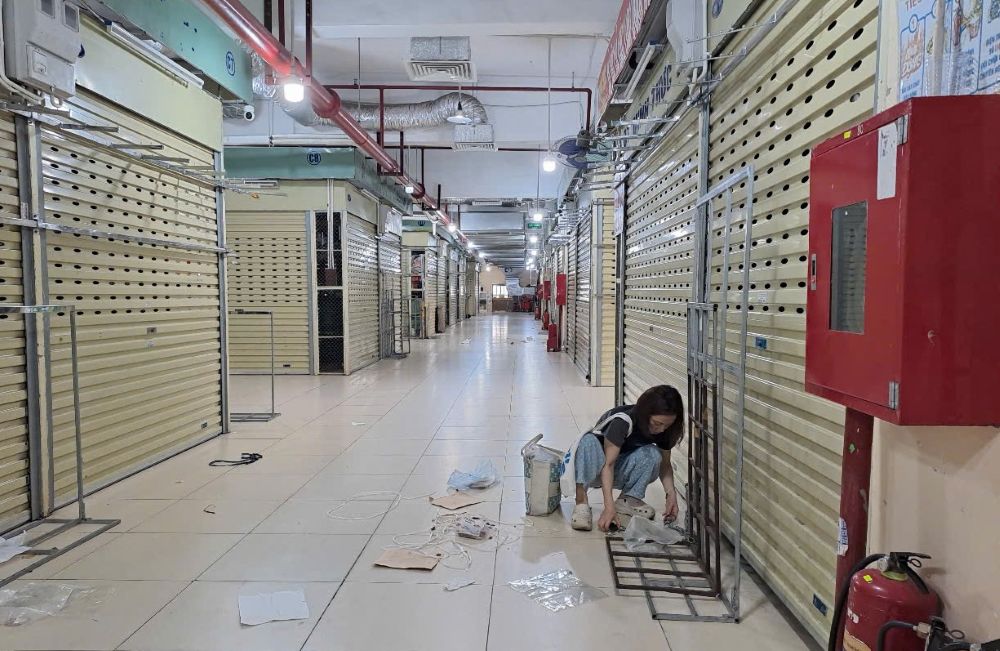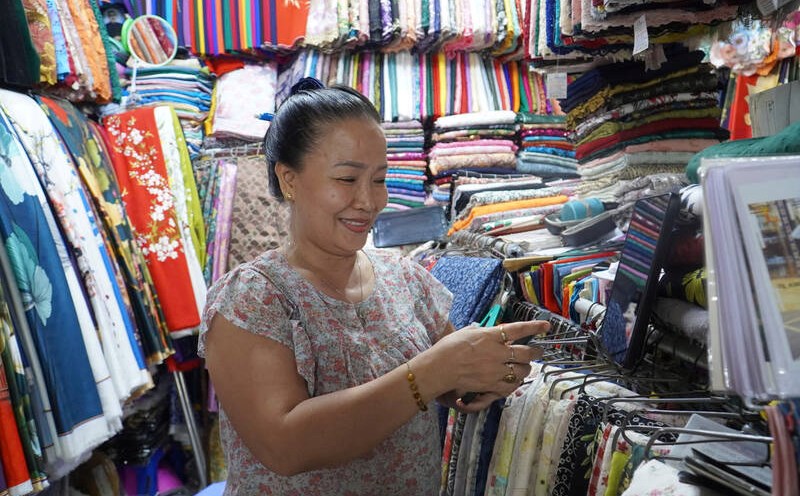At the end of June, after about a month since the authorities tightened the inspection of the origin of goods and the new tax regulations were applied, many traders at Ninh Hiep fashion unit market (Gia Lam, Hanoi) have not reopened.
Known as one of the largest fashion unit markets in the North, Ninh Hiep is currently more deserted than usual when the number of customers has decreased, the number of stores are operating less significantly.

Ms. Thuong (39 years old) - a long-time trader at the market - said that she was quite confused at first when she heard information about the new tax policy. However, after being instructed by the tax officer to declare and switch from contract tax to tax according to revenue, her business activities still functioned normally.
Only those who have not fully registered for business or have not prepared valid documents will face difficulties during this period. If it is clearly declared, there is nothing to worry about," said Ms. Thuong.
According to her, with an annual revenue of about 1 billion VND or less, the new tax rate of 1.5% (1% VAT + 0.5% personal income) on the revenue has not changed much compared to the previous contract of 1 million VND/month.
Ms. Ha (51 years old), who specializes in wholesale of clothes, said that her ordering volume has decreased sharply despite the goods having invoices, due to many customers temporarily stopping taking goods.
"I think many people do not understand the regulations so they should worry, and if they see others taking a leave, they will also take a leave. The psychology of reservations has caused business activities to stagnate," Ms. Ha shared.

A manager at Son Long market - a subdivision of Ninh Hiep market - said that up to now, many traders have not completed business procedures according to the new regulations, leading to many stalls closing for a long time.
"Based on electricity consumption data, it is estimated that about 20% of stores have not yet resumed operations. This situation has lasted for nearly a month, he informed.

Not only Ninh Hiep, the business situation at Dong Xuan market (Hoan Kiem, Hanoi) - one of the largest wholesale markets in the Northern region - also recorded many stalls operating at a low level. Some store owners said they open in the morning but close early in the afternoon due to weak purchasing power.
Mr. Khuong (38 years old) - owner of two stalls at Dong Xuan market - said: "The rental fee for each stall is about 15 million VND/month, plus the contract tax of 4 million VND, so the cost is quite high. But for nearly a month, we have not been able to sell, so many people choose to retire early to reduce losses".
Regarding the situation of many traders temporarily suspending operations, Ms. Ngo Thi Lua - Director of accounting services and tax agents Company LUKA - said that in the past, this unit has conducted many surveys and instructed traders to implement new tax regulations.
Through on-site and online surveys, we found that most traders have temporarily stopped trading because they do not have input invoices, mainly due to importing small-scale goods or buying them back from domestic sources but have not fully declared taxes, said Ms. Lua.

According to statistics from businesses, online instructions on new tax regulations attracted nearly 40,000 traders to participate. Nearly 100% of business people expressed concern about having a lot of inventory without documents, while others chose to temporarily retire due to the impact of community psychology.
Ms. Lua recommended that during this time, the management agency is still creating conditions for business households to handle inventory without invoices. Smal traders should proactively prepare an honest declaration table for inventory and send it to the authorities for instructions on consumption and tax payment in accordance with actual revenue, she said.








